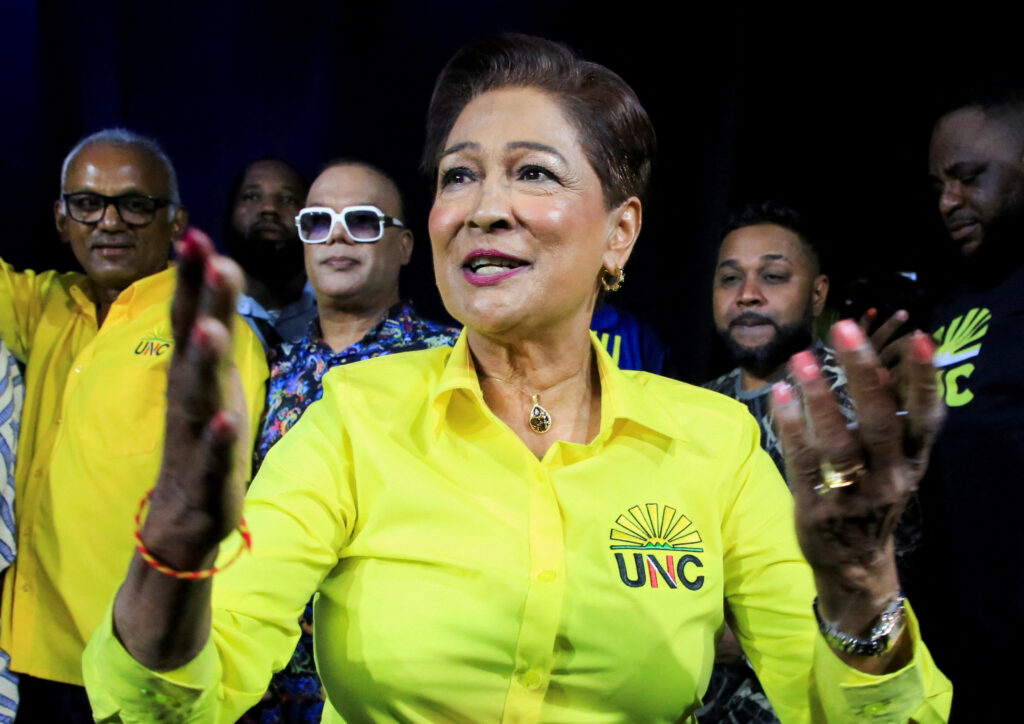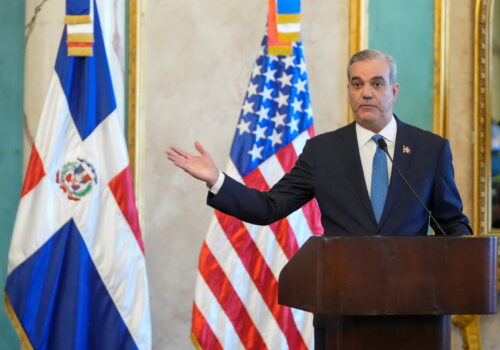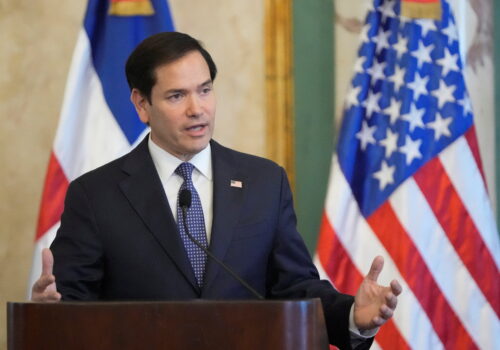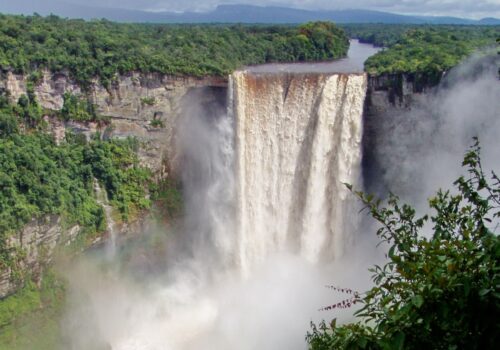Kamla Persad-Bissessar will be the next prime minister of Trinidad and Tobago following parliamentary elections on April 28. The landslide victory for Persad-Bissessar and her United National Congress reflects the state that Trinidad and Tobago has found itself in over the past few years. Declining natural gas production, spikes in homicide numbers and gang violence, and a dramatically changing geopolitical order all played their part on election day. Persad-Bissessar returns to the role of prime minister, having previously held the role between 2010 and 2015, but she has a tall mountain to climb this second time around. Reducing crime, bolstering energy security, and strengthening relations with the United States should be key features of Persad-Bissessar’s first one hundred days.
Persad-Bissessar will face significant challenges ahead. This past year was the deadliest in Trinidad and Tobago’s modern history, with a homicide rate of 45.7 per 100,000. That puts it at the fifth-highest in Latin America and the Caribbean. Growing gang violence and illegal small arms inflows from the United States and Venezuela are primary factors, even leading the then prime minister, Keith Rowley, to issue a state of emergency late last year.
Getting crime and violence under control must be a priority. The new government will have to address internal security concerns, such as gang activity, while protecting the country’s borders and informal ports of entry from illicit trafficking. A first step can be working with partners such as the United States, the United Kingdom, and Canada to invest in maritime interdiction capabilities. This would build off of the $500 million memorandum of understanding signed between Trinidad and Tobago and the United States in 2024.
Next, declining natural gas production threatens Trinidad and Tobago’s energy security. Natural gas is the bedrock of the country’s economy. It provides low electricity costs for its citizens and, through its petrochemical industry, is responsible for more than 80 percent of the country’s export revenues. However, over the past fifteen years, Trinidad and Tobago has struggled to tap into new natural gas reserves. Few awards are given to bidders during offshore auctions—zero were awarded between 2015 and 2022—and there are limited financial incentives to encourage further exploration by oil and gas operators.
Here, there are two areas Persad-Bissessar can focus on. First, she can work to fast-track development of commercially viable natural gas fields through tax concessions and subsidies. Second, she can take steps to diversify the energy matrix by investing in renewables. Trinidad and Tobago is primed to be a renewable energy leader in green hydrogen, onshore and offshore wind, and utility-scale solar. The country has a large electricity grid and population relative to its Caribbean neighbors, meaning that investors can invest at scale in a country that already has a track record of developing power generation projects.
Finally, Persad-Bissessar will become prime minister as the international system is entering a new era. Small countries do not develop in a silo. Instead, they need international partnerships. Trinidad and Tobago should start by strengthening its relationship with the United States. To do that, Trinidad and Tobago should seek out financial and technical assistance through the US Department of Defense and US Southern Command, which will be essential to enhancing the country’s capacity to address gang activity and protect its ports from illegal arms inflows.
Therefore, Persad-Bissessar should consider making Washington, DC, her first foreign trip as prime minister. US Secretary of State Marco Rubio’s recent trip to the Caribbean is a signal that the region is unlikely to be an afterthought for the United States, at least in the near term. Persad-Bissessar has a unique opportunity to capitalize on this attention and use a diplomatic visit to shore up support from the United States, engage members of the US Congress, and present the country’s natural gas and renewable energy potential as investment destinations for US businesses.
Persad-Bissessar has a tough task ahead. Energy security, citizen safety, and strong international partnerships are a must, but these challenges cannot be tackled alone. An all-hands-on-deck approach that includes working closely with the private sector and nongovernmental organizations can help Persad-Bissessar build a more secure and prosperous future for Trinidad and Tobago.
Wazim Mowla is the fellow and lead of the Caribbean Initiative at the Atlantic Council’s Adrienne Arsht Latin America Center.
Dale Ramlakhan is a nonresident senior fellow at the Caribbean Initiative.
Further reading
Thu, Apr 24, 2025
Could Trump’s focus on ‘economic security’ be a boon for the Dominican Republic?
New Atlanticist By Enrique Millán-Mejía
The United States is looking to work with partners in Latin America and the Caribbean to create reliable supply-chain environments for critical industries.
Tue, Mar 25, 2025
The US needs to build a new Caribbean policy. Rubio’s trip to the region can be the first step.
New Atlanticist By Wazim Mowla
US engagement with the Caribbean should prioritize energy investments and efforts to reduce violent crime in the region.
Mon, Dec 16, 2024
Guyana’s low-carbon model for resource-led development
EnergySource By Liliana Diaz
Guyana has emerged as a model for balancing economic development with environmental stewardship. Showing how the two goals need not conflict, Guyana is both capitalizing on its recent oil discoveries while also being a pioneer in biodiversity credits, expanding protected areas, and using oil revenue to finance renewable energy projects.
Image: Kamla Persad-Bissessar, leader of the centrist United National Congress (UNC), celebrates with supporters after securing victory in the parliamentary election, paving the way for her appointment as Trinidad and Tobago’s next prime minister, in Port of Spain, Trinidad and Tobago April 28, 2025. REUTERS/Andrea de Silva



